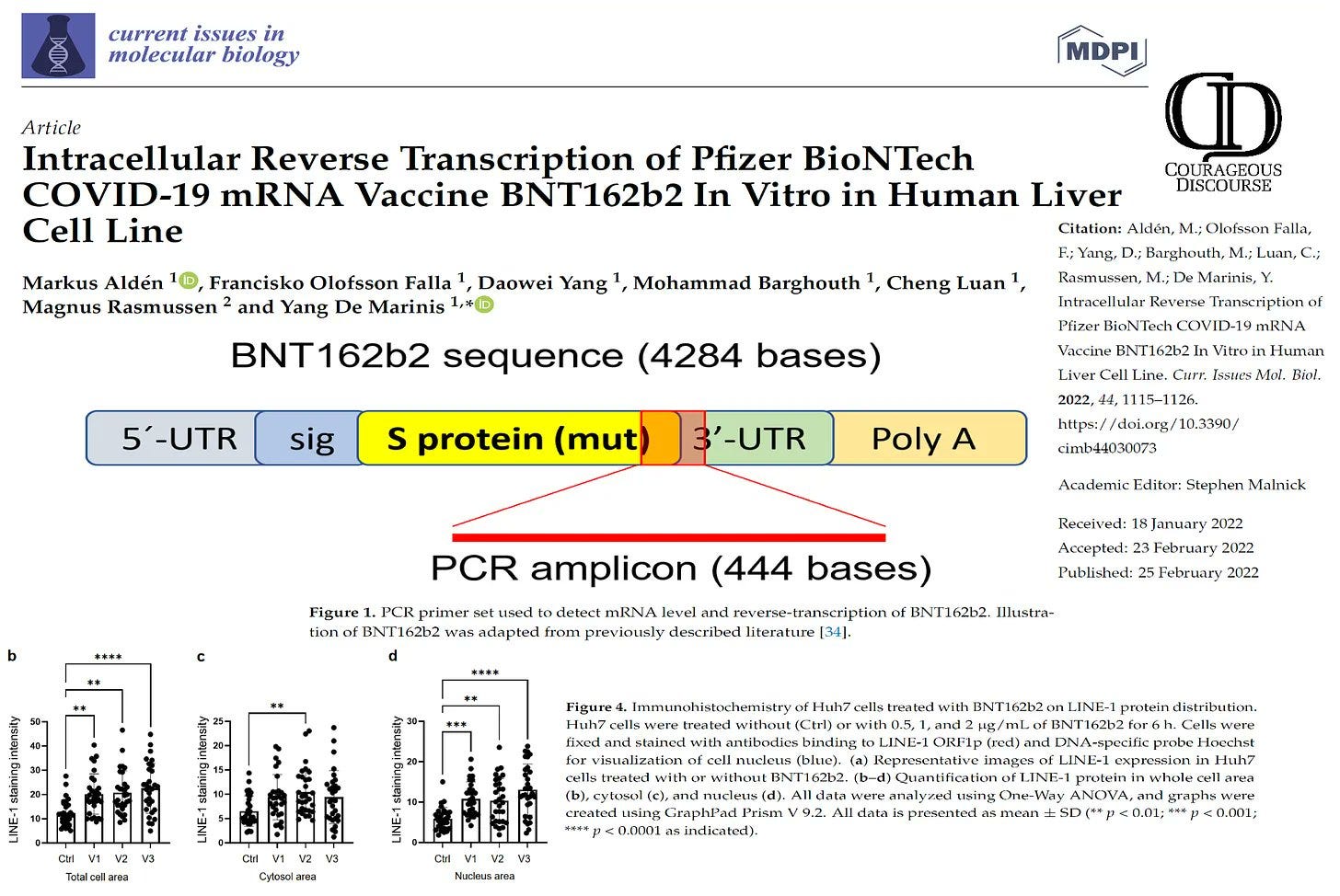In this groundbreaking interview, Dr. John Catanzaro (CEO of Neo7Bioscience) joins Dr. Peter McCullough and epidemiologist Nicolas Hulscher to present new molecular data on patients impacted by COVID-19 mRNA vaccination. A joint investigation by Neo7Bioscience and the University of North Texas Genomics & Biodiscovery Institute reveals a concerning pattern of biological disruption.
Using the REViSS platform—RNA Expression Variant Instability Signature Surveillance—researchers analyzed peripheral blood samples from real-world patients to assess hallmark gene expression, detect synthetic RNA fragments, and identify dysregulated signaling pathways associated with immune dysfunction and cancer progression.
The results support mounting evidence of reverse transcription, immune destabilization, and tumor-promoting gene dysregulation in mRNA-injected individuals.
REViSS Molecular Surveillance: Case-by-Case Analysis
The normal (Case 0) patient displays minimal transcriptional disruption, consistent with baseline gene stability.
The long-COVID case (Case 1), despite no vaccination, shows moderate unfavorable gene expression and synthetic signals, suggesting persistent spike protein from viral infection may lead to chronic transcriptional instability.
Vaccinated individuals (Cases 2 and 3) exhibit markedly elevated levels of unfavorable gene expression, synthetic RNA contamination, and oncogenic signaling—substantially greater than both the long-COVID and baseline groups.
The REViSS Potential Score (bottom panel) quantifies the overall molecular instability, with vaccinated cases scoring near 50, indicating a high-risk molecular profile.
Evidence of Reverse Transcription in Vaccinated Individuals
Dr. Catanzaro emphasized that REViSS data suggest vaccine-derived RNA may be reverse-transcribed into the host genome, permanently altering gene regulation. Several lines of evidence support this:
Persistent spike-linked synthetic elements were detected in peripheral blood samples of vaccinated individuals, including poly(A) tails, MT-S subunits, globin fragments, and SV40 promoter sequences—known components of mRNA vaccine constructs.
These elements were absent in the unexposed reference case, but present in vaccinated cases, indicating a persistent transcriptional presence of spike-related code.
This aligns with prior findings:
Aldén et al (2022) demonstrated reverse transcription of Pfizer BNT162b2 mRNA in vitro.
InModia Lab (Germany) has detected intracellular spike protein, vaccine mRNA, and SV40 in human samples, years after vaccination.
The implications are profound: some vaccinated individuals may carry the spike gene sequence permanently within their genome, contributing to chronic inflammation, immune suppression, and accelerated oncogenesis.
Cancer Signals and Immune Collapse
The REViSS platform also identified:
Oncogenic signaling consistent with downregulated tumor suppressors (e.g., TP53, BRCA1/2, RB1) and upregulated tumor promoters.
Evidence of “oncogenic flipping”, where tumor suppressors become dysregulated or even act as enhancers of malignant signaling.
Cases of glioblastoma multiforme (GBM) developing within nine months of mRNA vaccination, with REViSS revealing widespread transcriptional instability across pathways responsible for mitochondrial function, neuroinflammation, DNA repair, and endothelial integrity:
Misfolded Protein Accumulation and Clotting Pathology
Dr. Catanzaro also highlighted abnormal signaling in structural proteins—collagens, laminins, and misfolded matrix proteins—which could be contributors to the formation of white, fibrous clots observed in deceased mRNA recipients.
Dr. Catanzaro explained that the mRNA vaccine appears to induce:
Ribosomal frameshifting
Translational instability
Defective protein folding
These mechanisms may underlie the accumulation of amyloid-like fibrin strands.
Summary and Ongoing Mitigation Efforts
The data presented establish a growing body of evidence that mRNA vaccination can disrupt critical gene expression networks through persistent spike protein expression and possible genomic integration. These disruptions are:
Detectable long after injection
Correlated with cancer progression and immune dysfunction
Potentially reversible with precision therapies targeting transcriptional instability
Neo7Bioscience is developing personalized peptide-based treatments to recalibrate immune function and suppress oncogenic pathways. You can subscribe to Dr. Catanzaro’s Substack for updates.
The McCullough Foundation, Neo7Bioscience, University of North Texas Genomics & Biodiscovery Institute, and international collaborators will continue to expand this critical research.
Epidemiologist and Foundation Administrator, McCullough Foundation
www.mcculloughfnd.org
Please consider following both the McCullough Foundation and my personal account on X (formerly Twitter) for further content.



















Share this post